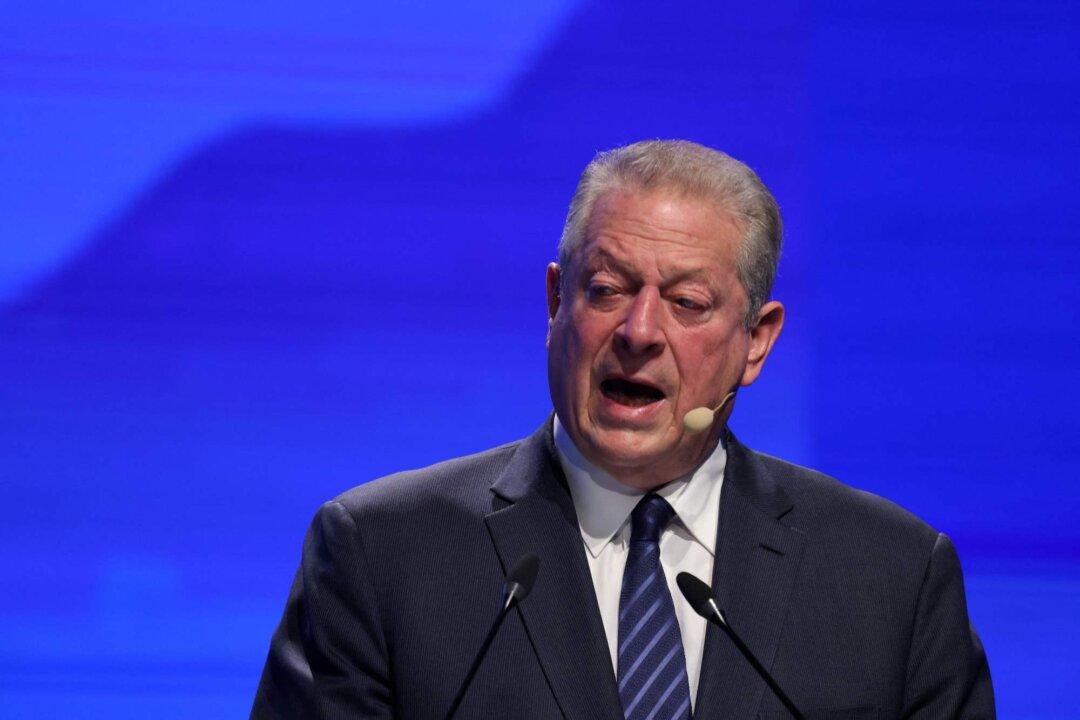Former U.S. Vice President Al Gore warned of “rain bombs” and “boiling” oceans in an emotional speech about climate change at a gathering of global elites at the World Economic Forum (WEF) in Switzerland on Wednesday.
Gore’s impassioned plea to fight climate change or face disaster—a common theme at the WEF summit—came during a panel on the second day of the elite gathering of world leaders and corporate executives in the Swiss ski resort of Davos on Wednesday.





